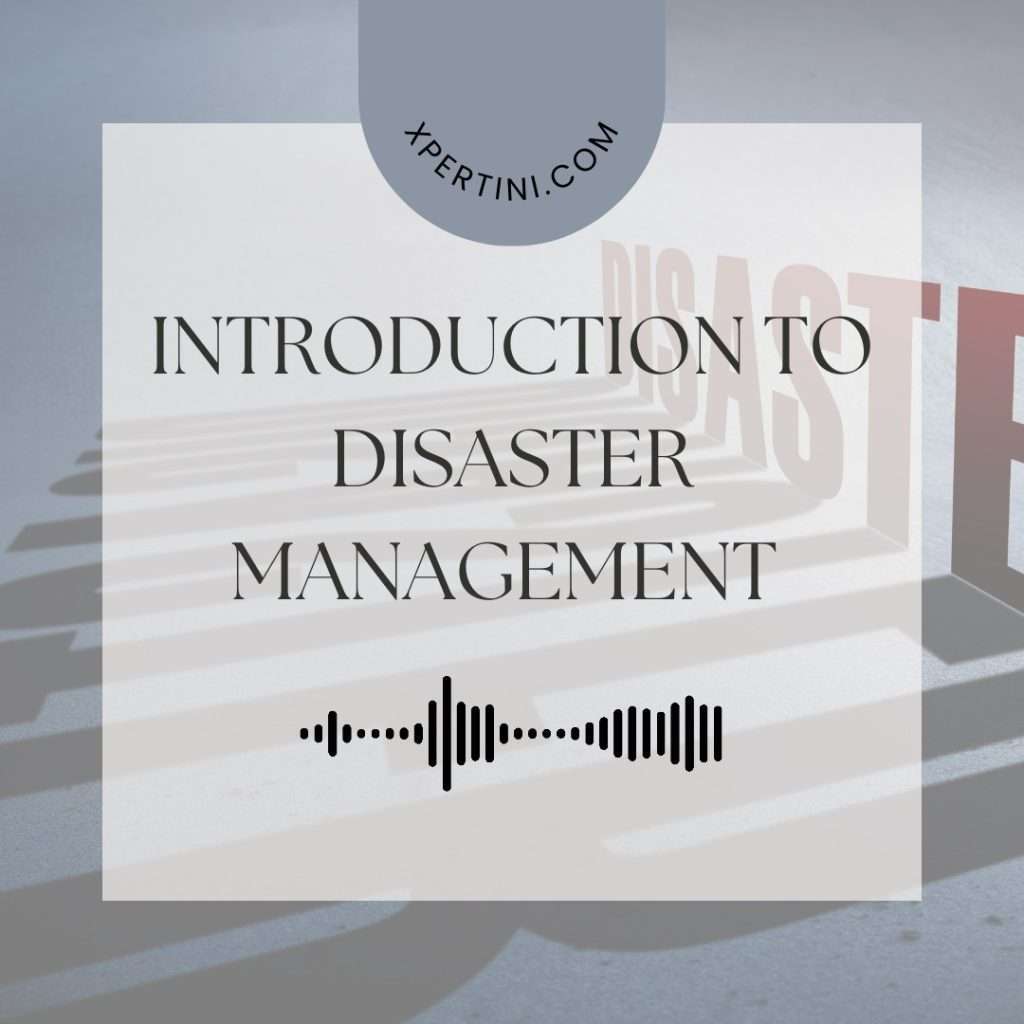Introduction to Disaster Management
Course Summary
In disaster management, professionals play pivotal roles in safeguarding communities against the multifarious challenges posed by natural and man-made disasters. This comprehensive course meticulously examines disaster management, offering invaluable insights into the diverse facets of preparedness, response, recovery, and mitigation. Through a blend of theoretical frameworks and practical applications, learners gain a profound understanding of the principles, strategies, and technologies employed in disaster management practices worldwide.
The course begins by elucidating the fundamental concepts underlying disaster management, emphasizing the importance of risk assessment, planning, and coordination in mitigating the impact of disasters. As learners delve deeper, they explore emergency response systems, incident command structures, and search and rescue operations, essential components for orchestrating efficient disaster response efforts.
Moreover, the course navigates through the realms of rehabilitation and reconstruction, shedding light on the psychological and social dimensions of disaster recovery. Learners gain insights into the importance of providing holistic support to affected communities, addressing not only physical infrastructure but also emotional well-being and social cohesion.
Furthermore, the course delves into technological innovations revolutionizing disaster management practices, such as GIS and remote sensing applications, and early warning systems. Learners discover how these cutting-edge technologies empower decision-makers with real-time data, enabling proactive measures to mitigate disaster risks and enhance community resilience.
As the course progresses, learners explore career opportunities within the field of disaster management, uncovering a myriad of roles ranging from frontline responders to policy-makers and planners. By understanding the educational pathways, skill sets, and professional development opportunities available, learners are equipped to embark on a rewarding journey in disaster management, contributing meaningfully to building safer, more resilient communities.
In conclusion, this course serves as a comprehensive guide for individuals aspiring to make a difference in disaster management. By fostering a deep understanding of the field’s complexities and opportunities, it empowers learners to become proactive agents of change, capable of navigating the challenges and uncertainties inherent in disaster management with confidence and competence.
Course Overview:
This course provides a comprehensive understanding of disaster management principles and practices. Participants will learn about various types of disasters, their causes, impacts, and mitigation strategies. By the end of the course, students will be equipped with the knowledge and skills necessary to effectively respond to and manage disasters.
Course Overview
This course provides a comprehensive understanding of disaster management principles and practices. Participants will learn about various types of disasters, their causes, impacts, and mitigation strategies. By the end of the course, students will be equipped with the knowledge and skills necessary to effectively respond to and manage disasters.
Course Objectives
Understand the concepts and principles of disaster management.
Identify different types of disasters and their characteristics.
Analyze the causes and impacts of disasters on communities and the environment.
Evaluate various disaster mitigation, preparedness, response, and recovery strategies.
Develop skills in risk assessment, planning, and implementation of disaster management measures.
Understand the roles and responsibilities of various stakeholders in disaster management.
Apply critical thinking and problem-solving skills to address challenges in disaster situations.
Demonstrate effective communication and teamwork during disaster response operations.
Explore ethical considerations and legal frameworks in disaster management.
Recognize career opportunities and pathways in the field of disaster management.
Course Outcomes
Able to classify different types of disasters based on their origin and impact.
Demonstrate an understanding of the causes and contributing factors of various disasters.
Develop risk assessment skills to identify vulnerabilities and prioritize actions in disaster planning.
Collaborate in simulated disaster scenarios to apply response strategies and assess their effectiveness.
Assess the socio-economic and environmental impacts of disasters on communities.
Critically evaluate the role of technology and innovation in enhancing disaster management capabilities.
Design comprehensive disaster management plans for different types of disasters.
Demonstrate effective leadership and decision-making skills in disaster response and recovery situations.
Explore interdisciplinary approaches to address complex challenges in disaster management.
Course Audience
Students interested in pursuing careers in emergency management, disaster response, or related fields.
Professionals working in government agencies, non-profit organizations, healthcare, engineering, and urban planning.
Individuals seeking to enhance their knowledge and skills in disaster preparedness and response.

